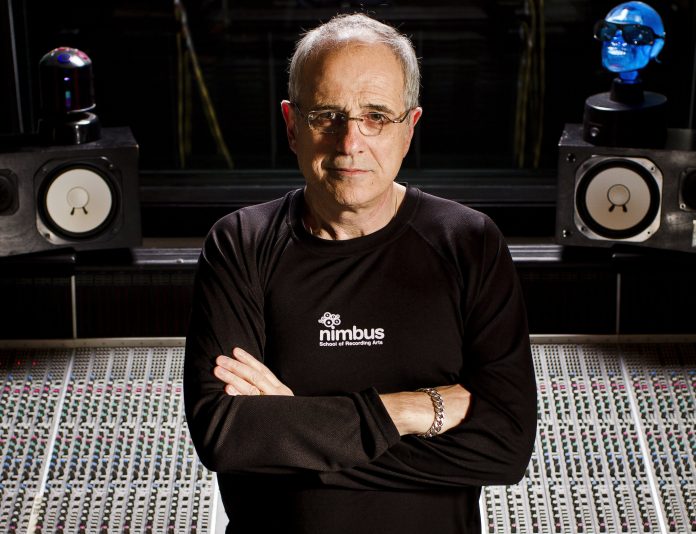HIT CHANNEL EXCLUSIVE INTERVIEW: We talked with one of the most important record producers of all time: Bob Ezrin. He has produced monumental albums like Pink Floyd’s “The Wall” and Lou Reed’s “Berlin” to name a few. He has also done numerous albums with other great artists including Alice Cooper, Kiss, Peter Gabriel and U2. It was a dream come true to talk with such a legend. Read below the very important things he told us:
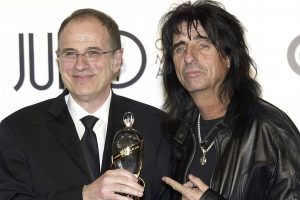 How was it to work again as a producer with Alice Cooper for “Welcome 2 My Nightmare”? Are you satisfied with its result? Dennis Dunaway (Alice Cooper’s original bassist) told me that it was great working again with you!
How was it to work again as a producer with Alice Cooper for “Welcome 2 My Nightmare”? Are you satisfied with its result? Dennis Dunaway (Alice Cooper’s original bassist) told me that it was great working again with you!
For Alice and me it was very natural and at the same time very exciting and inspiring to work again together after so many years. The Alice Cooper character was something that I always understood. In the old days, it was my favorite thing and coming back now after all this time, it was exciting and rejuvenating for me, and a lot of fun. Working with Alice is always fun. He’s very smart, very quick and he has a great sense of humor. It was great to hang out and to work with him again
What are the other projects you’re currently involved in as a producer? You’re now working on The Canadian Tenors..
Yes, right now I’m finishing up a record with The Canadian Tenors and after that I’m taking a holiday. For years I’ve never taken vacations so I really need it. I’m going to Florida.
You collaborated with Peter Gabriel on his ambitious “Scratch My Back” project. By whom were the covers chosen?
We chose them together. Peter already had a list of a few songs that he wanted to cover and I thought it was really great and then we chose from those and other songs together. I came into the project a little bit late. He had already started working on some tunes and cutting some demos and beginning to define the idea for the album. He and I met in Los Angeles to talk about it and we came up with a set of rules for the recording. It was important because we had only orchestra, no bass nor drums and no electronic instruments. Then we began to figure out which songs best suited his personality. There were a lot of songs from artists that he admired where the lyrics were too American or perhaps didn’t sound natural in the mouth of Peter Gabriel. It wasn’t easy to find stuff that he loved, that was suited to Peter and where the artists were available and wanted to participate. (ed: “I’ll Scratch Yours” forthcoming album). The original idea was for Peter to cover their songs and have them cover Peter’s songs.
Will the “I’ll Scratch Yours” album finally happen?
I hope so. I ‘m no longer involved in the project. In Peter’s world things can take a very, very long time and I have to do other things. But from what I hear from the team, they are getting the covers done and I suppose at some point they will put the album together and will put out a second record.
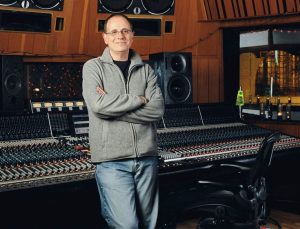 You’re the co-founder of Beat Kangz Electronics providing and developing electronic instruments for hip-hop/rap music. How did this idea come to you? You’re a top “classic rock” producer and we didn’t know that you’re familiar with hip-hop music…Was that a challenge for you?
You’re the co-founder of Beat Kangz Electronics providing and developing electronic instruments for hip-hop/rap music. How did this idea come to you? You’re a top “classic rock” producer and we didn’t know that you’re familiar with hip-hop music…Was that a challenge for you?
(Laughs) Do you know I also produced Jay-Z’s movie? You know, I love all kinds of music and I’ve been involved in almost every genre of music in one way or another. And even though I was producing all those rock records, I was also getting involved in other kinds of projects including classical, some pop and even some R’n’B. Beat Kangz Electronics came about when one of the three members of Beat Kangz, one of the original founders, came to California – I lived in California at the time – and he met me and showed me what this revolutionary technology is about, which at the time wasn’t really built, but was just an idea. They had provided sounds and advised on the architecture of a beatbox called Street Box, which was put out by Zoom. He came down and showed it to me and explained what his vision was, which was to create product under their own name. I just found his energy amazing and him very intelligent. I admired a lot of what they did with the Street Box, which was quite brilliant, and I got involved and I had been involved in for years and years. I am not as involved now, there is a new team and there have been changes over the years, but the product “The Beat Thang” is out and the reviews are great -people are loving it- and I was very happy that I was able to be a part of it.
You are co-responsible for Bigger Picture music label. How difficult is starting a music label during these “digital” times? Did it happen because you had bad memories working with major labels all these years?
Well, I didn’t start a label with Bigger Picture. The vision was, and had been for many years, that the most efficient relationship than an artist can have is with a partner who can provide the infrastructure and the resources that they need to pursue their dream and develop their career. In most cases today the partners in that team, including the manager the publisher the label the agent the promoter, all of them, have quite different agendas. Only the manager perhaps is 100% in the artist’s corner with all the rest being in a position to use the artist for their own goals, their own aims. Also, it costs the artists a fortune and in the past I’ve seen this unholy alliance of different constituents working actually against the artist. For instance, if the artist wishes to give away an album to sell tickets or T-shirts or fan club memberships, the label will absolutely prevent that. “That will not make me money, I’m not going to do it”. If the artist wishes to do something that wouldn’t help sell tickets, the manager and the promoter will say “No. It’s not gonna happen. Let’s not give away that income to the record company”. So, in order to make things work, an artist has to combine all those different constituencies into one cohesive team. One group that would cover almost everything. The idea with Bigger Picture was to be a joint venture partner, a business partner with the artist. People call it 360. It covers 360 degrees of the artist’s career. Bigger Picture is a simple joint venture deal which gives the artist as much control as possible. I love this vision. That is what Bigger Picture was created for and it continues to be that. Since last May, I am no longer involved in the venture. I‘ve gotten back into my old producer’s thing, and I just fell in love again with being in the studio and just focusing on the creative process. It’s been a long time by the way for me, A LONG time since I wanted to be in the studio for fun. Working with Alice and Peter and Kristin Chenoweth and a variety of other people, working on Taylor Swift’s live record, it inspired me and made me happy. I love this much more than being involved in the business part of the work. I decided to go out on my own and I have consequently left Bigger Picture Group to be a full-time producer again.
I’ll take you back to many years ago. When Lou Reed’s “Berlin” was released, it received totally negative reviews.
Not entirely, there was a reviewer in Rolling Stone who called it “Sgt. Pepper’s of the 70s”. Now, that is a little over the top. There were a few good reviews, but they were mostly negative, you’re right.
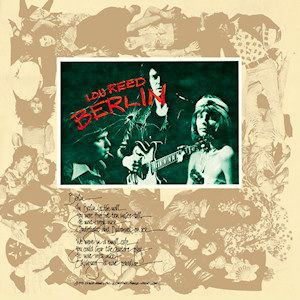 Some years ago when Lou presented it live, the reviews were very favourable. Do you think it was such a “difficult” album that it took them 35 years to understand?
Some years ago when Lou presented it live, the reviews were very favourable. Do you think it was such a “difficult” album that it took them 35 years to understand?
Yeah, I think it was ahead of its time, there is no question about that. It was artistically very adventurous and not at all safe. It would be much safer for me and for Lou to do a rock album and probably much more lucrative for Lou and me, you know. But at the same time I’m very proud of it, I love it. I love that record. I love what we did then. But at the time, it was very very difficult to listen to it. It was very hard to do that record because at the time it was very painful, and not as common, to talk in public about infidelity, spousal abuse, suicide, speed addiction. Now you are seeing and hearing about them on any network television show on any night of the week. In all the police shows and all the lawyer shows, you can see these things all the time. But then, people simply didn’t want to talk about that, they didn’t want to hear about that. When it came out, it was too – I don’t want to say negative – too dark and uncomfortable for people to accept it.
Of course, you produced Pink Floyd’s “The Wall”. How tense were these sessions? I know the atmosphere within the band members wasn’t good. Was it difficult as a producer to make things work?
On the one hand, I can say it was really difficult, that there were moments of tension and all that stuff. But on the other hand, in the great scheme of things, the tension was much less than the tension you in Greece are experiencing every day right now with your monetary problems. It was just a bunch of rock stars egos clashing and some creative dynamic tension, which I think was necessary to make it what it is, by the way. I don’t think any project can be entirely great without some level of dynamic tension in it. It is something that pushed them.
Eddie Kramer (Jimi Hendrix, Led Zeppelin, Rolling Stones producer/engineer) told me the same about the Stones, the Beatles, Zeppelin.
Yeah. From what I know, that is entirely true.
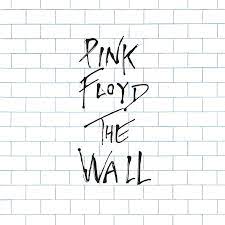 Had you realized while recording “The Wall” that you had created such a monumental album?
Had you realized while recording “The Wall” that you had created such a monumental album?
We knew. We knew. We knew what we were building then and I knew, I really knew by the time the album was almost completed. It was clear that it was a work of great importance and for Pink Floyd fans, that it would be a very important record and I believed as it happened with “Another Brick In The Wall Pt2” that we had singles, which was unusual for Pink Floyd. They only had one before this: “Money”. So, I thought it was going to be a pretty good record and but I didn’t know at that point that it would become one of the highest selling albums of all time. I think it’s still in the top-5, certainly top-10 of all time. That’s great, I’m really proud of what happened. I look back at those times, yeah, it was difficult. You know I was going thru a lot of personal stuff at that time, so that complicated things for me and created a little less focus on my part, but in my recollection of the project, it was that exciting, highly energetic tension that created something so special. Even though it was created through arguments, we were creative and that was exciting.
KISS did their best albums with you. How difficult was it to “direct” them in the studio? How much discipline did they have ?
It wasn’t difficult at all. We were at the very beginning of “Destroyer”. Ι’d heard the record they made before “Destroyer” (“Dressed to Kill”) and they sounded fairly competent, pretty good. I assumed that they there were more sophisticated musically than they were and I found out that they were playing instinctually. They didn’t really have any musical education or background, so we really had to start from the scratch on “Destroyer”, to go back to the beginning and actually learn a little bit about music, about structure, about rhythm, about what keys go together, etc and then we had to deal with the record. And the reason I had to do that is because if I said “I need a press-roll on 3”, I needed someone to understand what I was talking about (laughs). We did that and we rehearsed a lot for “Destroyer”. We really rehearsed well. When we went in the studio, it was simply a matter of playing the parts they already knew and it was a matter of getting a rich sound and a rich performance.
I’ve read that at some point during the Guns N’ Roses lengthy “Chinese Democracy” recordings, Axl Rose called you to evaluate what he had already done. What really happened?
Hm.. Well.. (ed: pause) I’m not sure!! (laughs)
I’ve read that you told him he had about 2 ½ songs or 3 ½ songs. Something like that.
Yeah, I probably did. It started off when Jimmy Iovine (ed: producer, chairman of Interscope/ Geffen) asked me for a big favour. They were stuck, they were stuck in a studio in North Hollywood for years with Roy Thomas Baker (ed: Queen’s producer), and nothing was happening. They were paying enormous rental bills and they were paying people to sit around the studio waiting for Axl to show up and it was just a disaster. I agreed to go there immediately and listen to a bunch of stuff. What I heard was – I don’t know how to say this without be insulting, I don’t want to be insulting because he worked very hard on it – but what I heard was something that he had painted over too many times. So, by the time I heard it, the original content was lost and it was just a highly produced piece of something… Anyway, I agreed to help out if Axl would agree to work with me, which he did. He had the idea that the only person who could finish the album with him was me, based on what I don’t know. I came, I listened, I said to him I will listen and will give you notes we will see together. I spent a lot of time listening. I went to see Jimmy Iovine and I gave him my perception of the situation, including the fact that they had to get out of Rumbo Studios immediately – not because Rumbo is a bad studio, it’s a wonderful studio – but because they needed to be closer to the scrutiny of the record company and Jimmy’s team, so there could be at least some measure of control. And I recommended we move them to the Village Recorder in West Hollywood. So, they did that, and moved everybody there. I had to wait to talk to Axl because he avoided me. He was nervous about hearing what I had to say. We finally met, on a night when my wife – who was then my girlfriend – came down from Toronto to visit me and we were having a dinner with friends at my house. She was cooking when I got a phone call from Jimmy Iovine saying that I needed to come meet Axl and I said “I can’t tonight. I’m booked”. And Jimmy replied saying “ok” (laughs). No he didn’t. When he wants something, he really knows how to get it. Anyway, he basically guilt-tripped me and I told him “Ok, I will be there at 8pm and I will leave there at 8.30, whether Axl shows up or not”, because that was Axl. Because last time we had an appointment at 10pm and Axl showed up at 2 in the morning. “So tell Axl that’s it”. I went to the restaurant at 8 and a team of Axl supporters and hangers-on showed up and joined me at the table – and no Axl. Axl finally came about 8:25 (laughs). Anyway, I told him basically what you’ve heard. I didn’t tell him “you have 2 ½ songs” and when he sat down, he started saying me that he has finished the record. And I said “Axl, we are not ready to mix this record. This record isn’t ready to be mixed”. I said “there are two great songs on it and I know that you’re capable of more, that’s the reason why I’m here. You’re such a great talent and I would do you a disservice if I didn’t tell you the truth, which is that most of the songs aren’t great. But I‘m very happy to help you get there and I believe that it’s possible, if you would like to continue to work on the record, to make it better”. He said “I don’t agree with that. We are ready to mix”. And I told him “you have my number, if you change your mind let me know, but I have a dinner party at home now and I had to go”. I left and I haven’t heard from him since. It was years later when it came out.
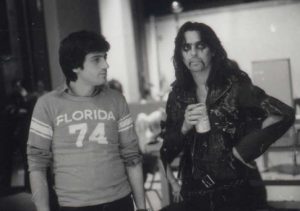 You have worked with many great artists. Is there anyone you’d like to work with and hasn’t happened yet?
You have worked with many great artists. Is there anyone you’d like to work with and hasn’t happened yet?
Only one? There are many people that I would like to work with and haven’t yet. The group that I would love to work with the most is U2. I have actually worked with them on the “Saints are Coming” live release, but I would love to work on an album with them. I don’t think it’s practical and it’s not realistic based on the way they work. They really need a person with less responsibility who can afford to go wherever they are and to dedicate himself to the project from the very first day until it’s done. That’s not something that I can do anymore, but I wish I could, because I like them very much as people. The Edge is a dear friend of mine, Bono is a friend. I feel like The Edge is my brother, so I would love to do that. Someday maybe, who knows? There are a number of pop artists, believe it or not, that I would love to work with, not just the rock ones and there are some classical projects that I would love to do too. You know I’d love to work on a project with Bocelli. I would like to work with The Black Keys, they are a wonderful band. There are just a lot of different artists that I think are great and I would really enjoy working with. Hopefully, now that I’m back to producing I’ll get the opportunity to do some of that.
You admire Trent Reznor’s (Nine Inch Nails) work. What do you like the most in his skills?
Trent Reznor is someone that I would love to work with again. I really enjoyed working with him on “The Fragile”. What I appreciate the most about him is that he is a true genius.
Musicians who have worked with you, like Nils Lofgren and David Gilmour have a great respect for you as a producer and as a person. Do you see this as an extra credit for your work so far?
I find that very gratifying. I really appreciate that I’ve managed to maintain that kind of relationship with people I have worked with. Everyone wants to be respected, of course. I find it very gratifying that people I have worked with express their respect… and maybe that is the greatest thing. And that was what I strived for, more than anything not to… Let me say that, I didn’t strive to be respected, I simply strived to live up to my own principles and I committed to doing it by doing good.
Where is sound heading in the future? I think there is a kind of ‘70s revival this period. Am I right?
Do you mean now in terms of rock? Yes, I think there is some kind of ‘70s revival sonically, although the digital side of things makes it difficult to get the same warmness, the same vibe. But I like the fact that a lot of bands are going back to playing live, not much auto tuning, not quantizing the drums. That’s one of the things I love about bands like The Black Keys. Anyway, I agree with you, there is a revival in interest, in more primitive, more natural music like in the 70s.
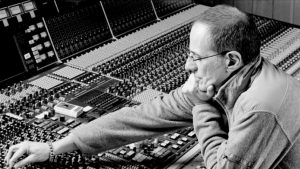 Have you ever been to Greece?
Have you ever been to Greece?
I haven’t. It’s pathetic, right? It’s pathetic that I have not been to Greece. But unfortunately most of the time, I didn’t have enough time to do long holiday trips to Europe or Asia or anywhere. All of the traveling that I have done in my adult life, has been as a result of work. So, if some nice Greek artist wants to bring me to Greece to work, I’d love that (laughs). The opportunity to be in that country, you know. For example, I told you that I’m finally getting the chance to have a vacation after several years, in Miami. But it will only be two weeks. That’s it. I don’t have time to go anywhere really.
There is a studio on a Greek island, Santorini, where Joe Bonamassa recorded with Kevin Shirley as a producer.
Yeah, that’s good for them (laughs). If you know someone who wants to work in Greece or some great Greek artist who wants to work with a Canadian producer, let me know. The best thing for me is to go to a country and work with the artist from that country in that country. I love it. I did that in Italy, I did it in Japan, I did it in England of course many times and that was always great fun for me.
A huge “THANK YOU” to Mr Ezrin for his time!
Also, I would like to thank Kim for her great help. She is the person who made this interview happen.


